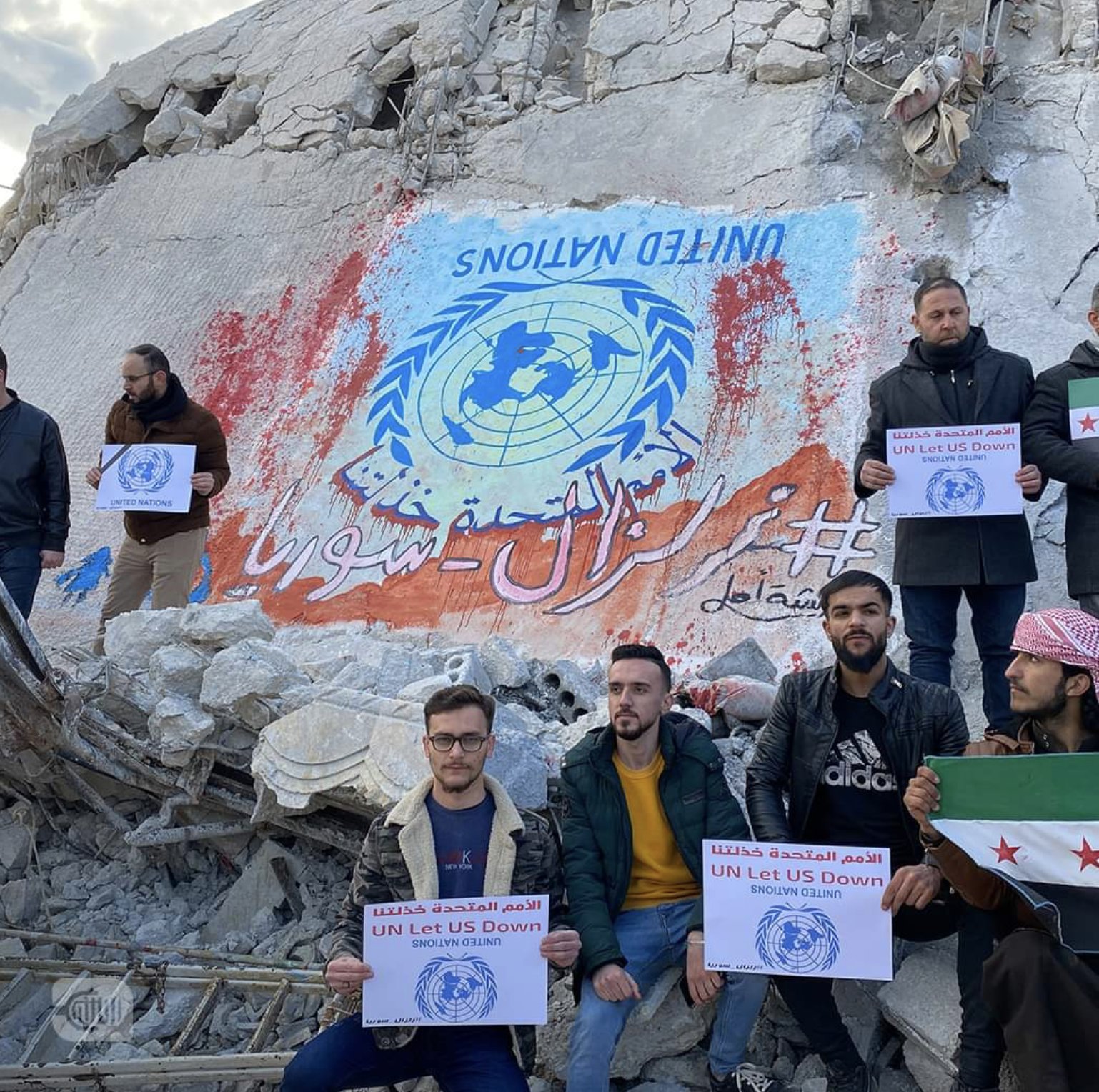WHO has also come under criticism over their visit to areas held by the Syrian regime.
The United Nations has admitted the failure to deliver much-needed aid to northwest Syria following last week’s deadly earthquakes that struck Turkey and Syria, where more than 33,000 have been killed.
“We have so far failed the people in northwest Syria. They rightly feel abandoned. Looking for international help that hasn’t arrived,” Martin Griffiths, UN Under-Secretary-General for Humanitarian Affairs and Emergency Relief Coordinator said on Sunday.
In a tweet, the UN official added that the agency aims “to correct this failure as fast” as they can.
The comments came amid a delayed arrival of urgent aid to the crisis-ridden country following the tragic earthquakes.
Aid delivery to non-Assad regime held areas in northwest Syria has been particularly hindered, with only one cross-border humanitarian corridor functioning out of four. The three other borders have been blocked off by Russia’s veto in the UN Security Council, in an attempt to pressurise populations in non-regime held Syria to accept regime rule.
As such, the regime has to approve the entry of aid if coming through their areas, of which it has not yet done.
The 7.8 magnitude earthquake struck last week in southern Turkey and northwestern Syria, followed by several aftershocks.
One week later, the earthquake casualties exceeded 33,000, as search and rescue operations continue. The death toll in Turkey alone reached at least 29,605 and at least 3,500 people were killed in Syria, though the actual figure has not been updated.
The UN warned that 5.3 million people in Syria may have been made homeless as a result of the earthquake with at least 550 buildings completely destroyed.
A UN convoy of six trucks only managed to cross into northwest Syria only three days after the quakes through the Bab Al-Hawa border. The area has already suffered from more than a decade of war.
Outrage over WHO chief visit
Meanwhile, outrage ensued on social media following the visit of the World Health Organisation (WHO) and chief Tedros Adhanom Ghebreyesus’ meeting with Assad in Damascus.
Speaking to reporters, Ghebreyesus said Assad “was open to considering additional cross-border access points for this emergency”, referring to him as “his excellency”.
The meeting has caused uproar, with many citing Assad’s killings and torture of Syrians over the past decade, with numerous reports finding him complicit of crimes against civilians.
“The WHO’s head calls genocidal dictator Assad *His Excellency President* after the same has been bombing hospitals, weaponising healthcare and torturing people to death over the last 12 years,” Simona Jeger, humanitarian advisor, said in a tweet.
Jeger added that the visit “really tells everything about how morally deprived the UN are.”
Echoing the same sentiment, one social media user said,“WHO’s head calling Assad ‘his excellency’. Rather Assad is a mass murderer, a psychopath killer who destroyed lives of Syrians.”
While there have been growing calls for the lifting of sanctions from the Assad regime to enable aid entry, many activists and experts have clarified that the sanctions do not in fact affect NGO’s and humanitarian relief.
Many rights advocates have also pointed to the Assad regime’s attempts to call for the lifting of sanctions under the guise of humanitarian aid.
In spite of this, the United States has issued a six-month sanctions exemption on Thursday for all transactions that would help provide relief to Syria.
“I want to make very clear that US sanctions in Syria will not stand in the way of life-saving efforts for the Syrian people,” Wally Adeyemo, Deputy Secretary of the Treasury, said.
Qatar efforts in Syria
The Gulf state was quick to respond to the disaster last week to provide urgent aid to those affected by the quakes.
A Qatari campaign on Friday successfully gathered 168,015,836 QAR (around $19 million). Qatar also donated 10,000 mobile homes to provide much-needed shelter for those affected by the earthquakes, the worst the area witnessed this century.
Meanwhile, Qatar Charity has started operating eight health centres worth 7 million QAR along with a bakery that produces more than 5,000 bundles of bread daily.
On Monday, a team from the Qatari International Search and Rescue Group also visited several Syrian areas adjacent near the Turkish border, including Jindires.
The Qatar Fund for Development (QFFD) has joined the Syria Civil Defence, also known as the White Helmets, to help with search and rescue operations.
The collaboration with QFFD will help the White Helmets in meeting fuel demands to operate heavy vehicles throughout the operations.







